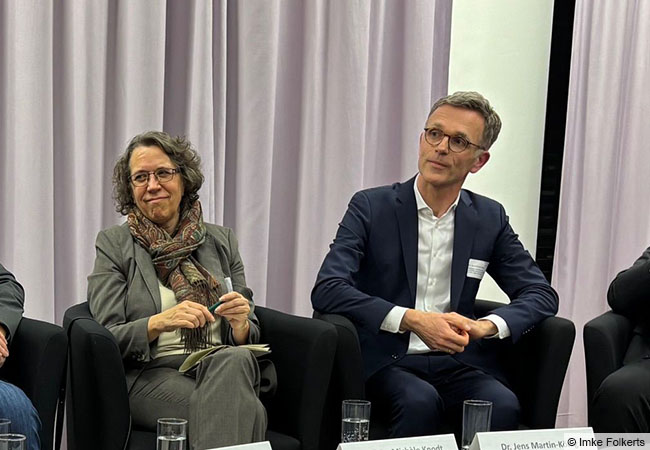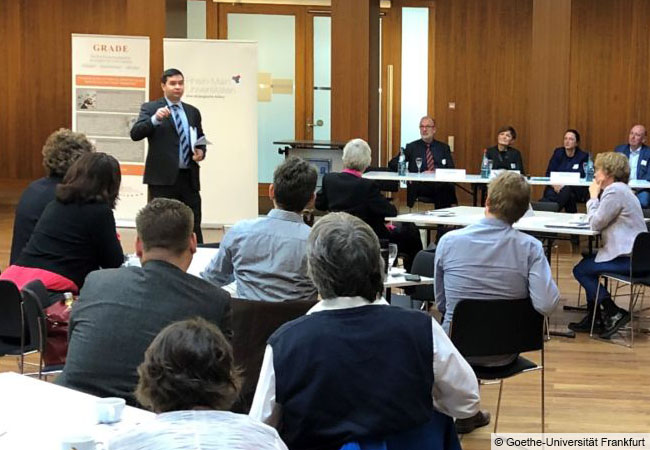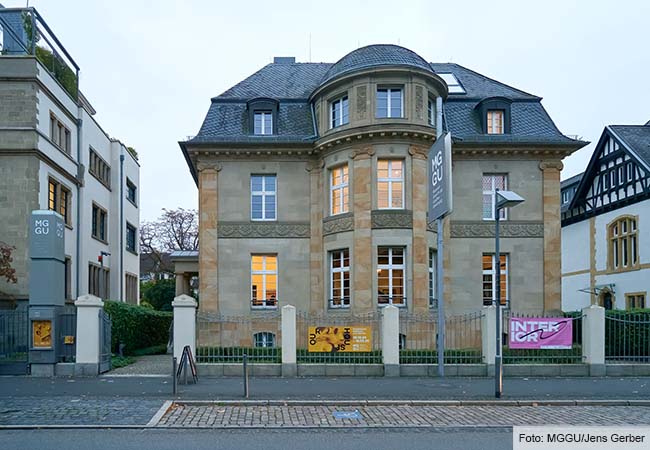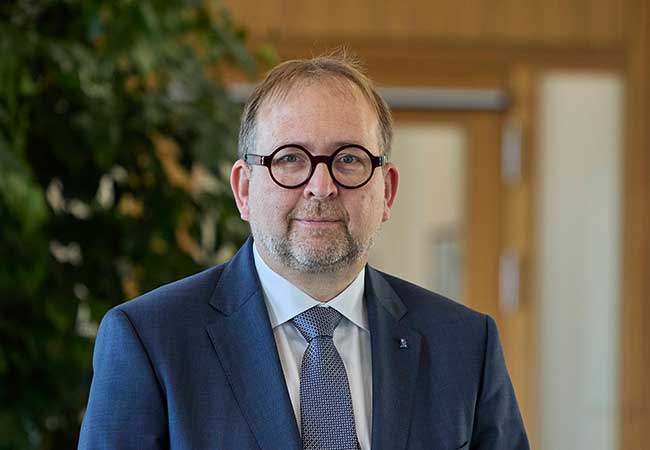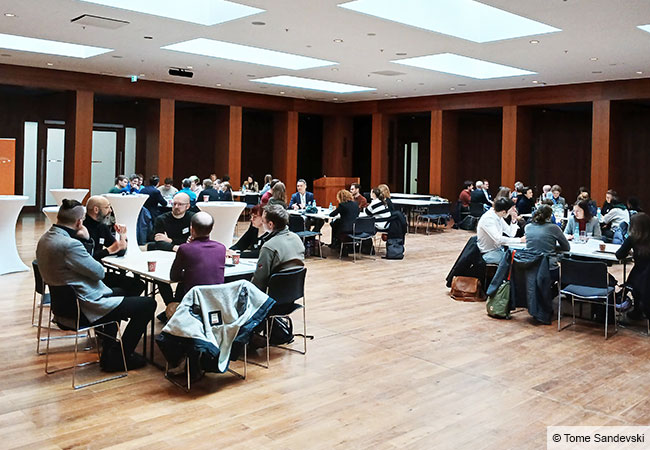Like carbon dioxide, many gaseous substances containing halogens such as chlorine or fluorine contribute to the greenhouse effect. Researchers from Goethe University Frankfurt have now put a measuring device into operation at the Taunus Observatory on Kleiner Feldberg, a mountain near Frankfurt, which continuously monitors the concentrations of such gases with very high accuracy for the first time in Germany and within an international network. Initial results indicate that sources of special fluorinated gases (F-gases) are present in Germany as well. The scientists in Frankfurt emphasize that recording F-gases ought to be included in the official air monitoring program in the long term.
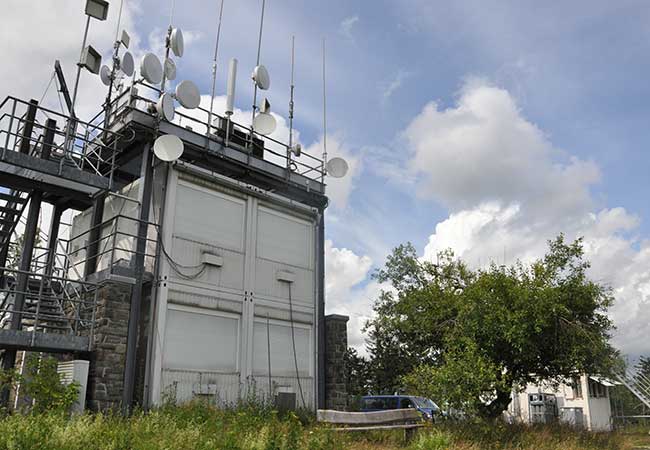
In the past, they were found in every refrigerator and aerosol until it was discovered that they had ripped a hole in the ozone layer protecting Earth’s atmosphere: chlorofluorocarbons, in short CFCs. Since 2000, the Montreal Protocol has practically abolished CFC production worldwide. Halogenated hydrocarbons without chlorine, known as F-gases, were increasingly used as a substitute – until it emerged that these gases, although they do not constitute a threat to the ozone layer, are nonetheless potent greenhouse gases, just like CFCs. Accordingly, F-gases were added to the Montreal Protocol in 2016 within the “Kigali Amendment”. In Europe, the F-Gas Regulation (517/2014) aims to ensure the reduction of emissions.
Despite their low concentrations, halogenated greenhouse gases play a significant role in climate change: They are responsible for up to nine percent of the anthropogenic greenhouse effect – one kilogram of these gases can have the same impact on the climate as ten tons of carbon dioxide. To date, however, their occurrence in the atmosphere has not been systematically monitored in Germany.
Within the ACTRIS research infrastructure, scientists from Goethe University Frankfurt have now put a measuring device called “Medusa” into operation at the Taunus Observatory on Kleiner Feldberg, a mountain near Frankfurt, which continuously measures the concentration of many trace gases relevant for the atmosphere. Their measurements of halogenated greenhouse gases are also incorporated in the international AGAGE network, which has been monitoring the occurrence of climate-relevant trace gases at stations all over the world since 1978. These are the first high-quality measurements of this kind in Germany that can also be compared with data worldwide.
Professor Andreas Engel from the Institute for Atmospheric and Environmental Sciences at Goethe University Frankfurt, who is in charge of “Medusa”, says: “Our measurements have already clearly shown that there are significant sources of F-gases in Germany. We have therefore joined forces within an EU-funded project with other researchers, primarily from Germany, Switzerland and the UK, to quantify F-gas emissions on the basis of these measurements with the help of computer models and to further narrow down their regions of origin.”
The very low concentrations, the large number of components to be measured and the high accuracies required make the measurements very complex, he says. He is convinced, however, that – because of their significance – measuring F-gases should shift from research to official air monitoring in the long term: “We need to set up a program that also integrates the systematic recording of halogenated greenhouse gases, including F-gases, into the official atmospheric measurement system. This could deliver sufficient data to identify sources and take appropriate countermeasures.”


